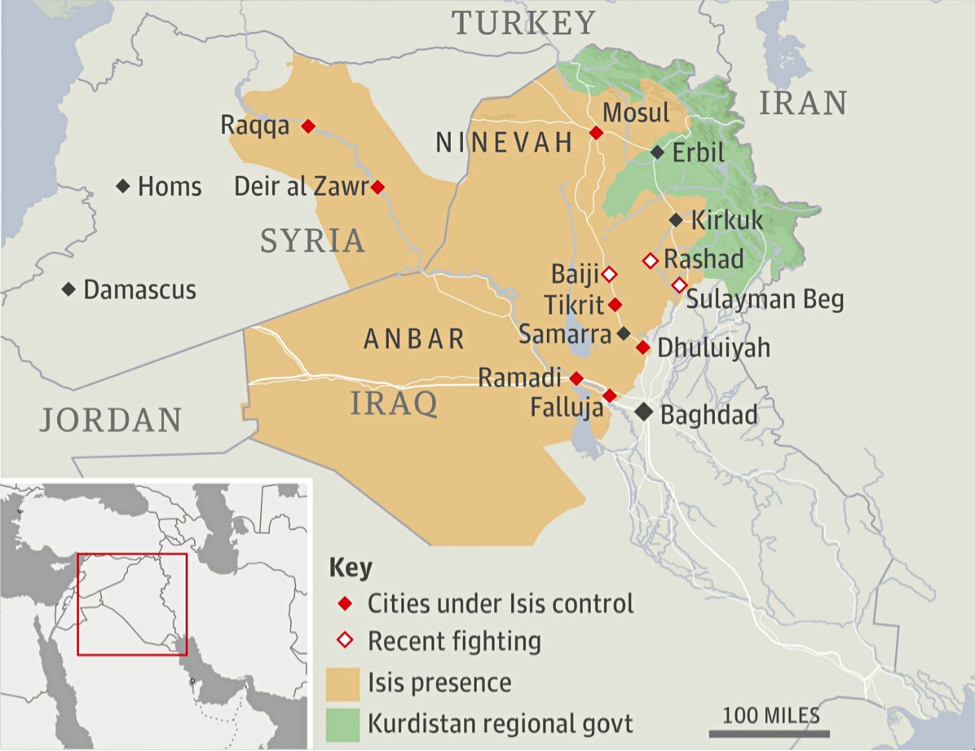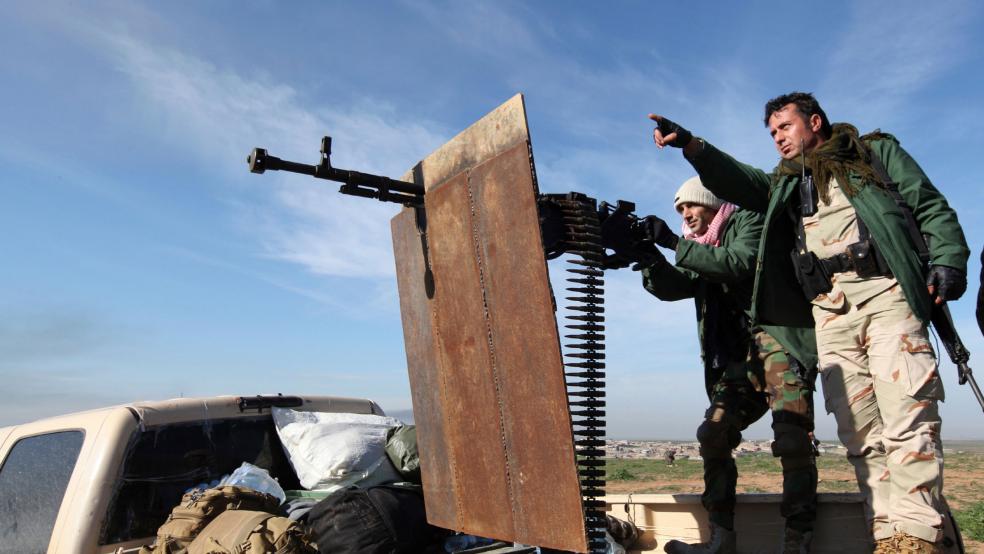Over the last 24 hours, ISIS has been defeated in every front in Iraq in unprecedented way. From Mosul to the north to Anbar to the west and Diyala to the east, Iraqi government forces, Shiite militias, Sunni tribes and Kurdish forces were all victorious in battle.
Since the start of the U.S.-led air campaign, ISIS has lost its momentum in Iraq and lost some of the cities and towns that it captured in June 2014. It still controls the provincial capitals Mosul and Tikrit as well as the city of Fallujah west of Baghdad, and many other small towns throughout.
Related: ISIS May Be Executing Its Own Fighters
Liberating Mosul is crucial – it’s Iraq’s second-largest city, and the largest city controlled by ISIS, located in Nineveh province. Ever since the fall of the city in June, ISIS became the leading global terror organization. It surpassed al-Qaeda central by inspiring tens of thousands to join its ranks and many more to commit acts of terrorism on their own. The Jewish Museum of Belgium shooting in May 2014, the Sydney hostage crisis in December 2014, the attacks in France, and the plot to blow up the U.S. Congress earlier this month – all were inspired by ISIS.
But on Wednesday, ISIS was pummeled, and Kurdish Peshmerga forces retook an area near the Mosul dam, liberating seven villages.
“ISIS has left more than 200 bodies of its fighters in the field,” said Masrour Barzani, chancellor of the Kurdistan Region Security Council and the son of the region’s president in a press conference on Wednesday. He added that his forces and the international coalition air force have destroyed 14 car bombs prepared and launched by ISIS during the battle.

Source: BBC
Another Kurdish official said that the Kurdish Peshmerga are now 10 miles only away from Mosul, stating that 30 ISIS fighters were killed by air bombing in northern Mosul and 10 ISIS artillery canons were destroyed.
While ISIS was on the defense in Mosul, it was on the offense in al-Anbar province to the west of Baghdad. Al-Anbar is Iraq’s largest province geographically, making up one-third of Iraqi territory. On Wednesday, ISIS attacked the provincial capital al-Ramadi, 70 miles west of Baghdad, using seven car bombs.
Related: GOP Blasts Obama for ‘Listless’ Anti-Terror Strategy Against ISIS
Al-Ramadi has been divided between the Iraqi government and ISIS since January 2014. ISIS has attacked the government controlled parts numerous times throughout the last year. Wednesday’s attack was the strongest. However, the Iraqi army, police, Special Forces and the Sunni tribes were able to repel the attack.
“The terrorist was killed before he reached his target,” said Saadon Shehan, a blogger from al-Ramadi, referring to one of the car bomb attacks. A video of one the car bomb attacks was posted online. The Iraqi army launched an attack to the north of the city, destroying eight ISIS boats that were used to transport fighters and equipment between Mosul and al-Anbar. A day earlier, ISIS has also launched three attacks in Anbar, killing and injuring dozens of Iraqi soldiers and police officers.
In Diyala province northeast of Baghdad, ISIS had already lost most of the province except for a few pockets. One of these is the town of al-Miqdadiya. ISIS established three defensive lines to prevent the Iraqi government from any further advance. The Shiite militia infiltrated ISIS and discovered the exact locations of these lines. A heavy artillery shelling followed and the lines were destroyed. ISIS fighters ran away to nearby farms.
The ISIS defeats of Wednesday are significant. They could lead the way to liberation of Mosul. “ISIS has lost today 20 percent to 25 percent of its controlled territories in Nineveh province…and the liberation forces of Mosul will have 5,000 fighters in five days who are ready for special operations,” said Hisham al-Hashimi, an ISIS specialist. Already many experts are optimistic about what this could mean for the global war on ISIS.
Top Reads from The Fiscal Times:





